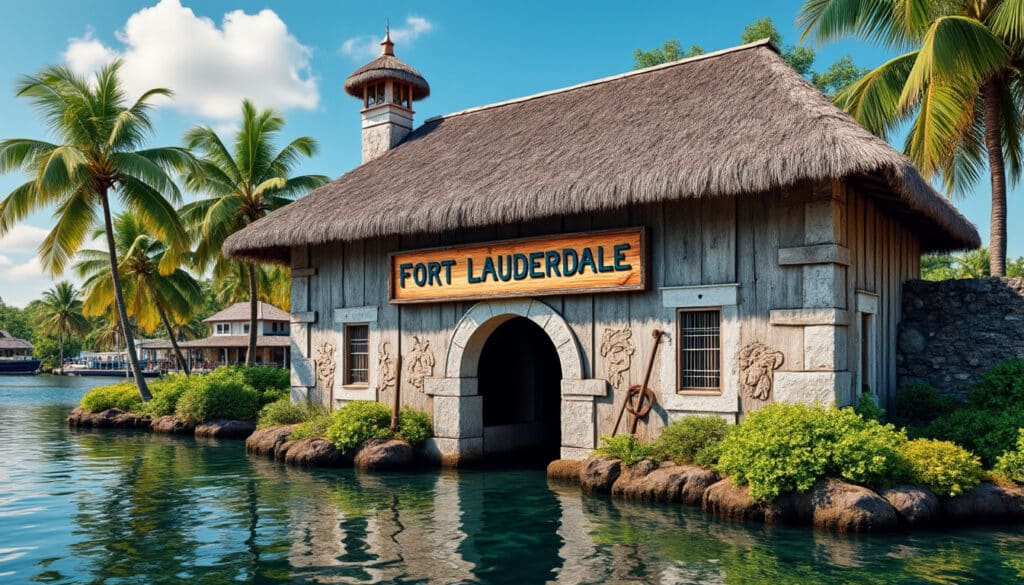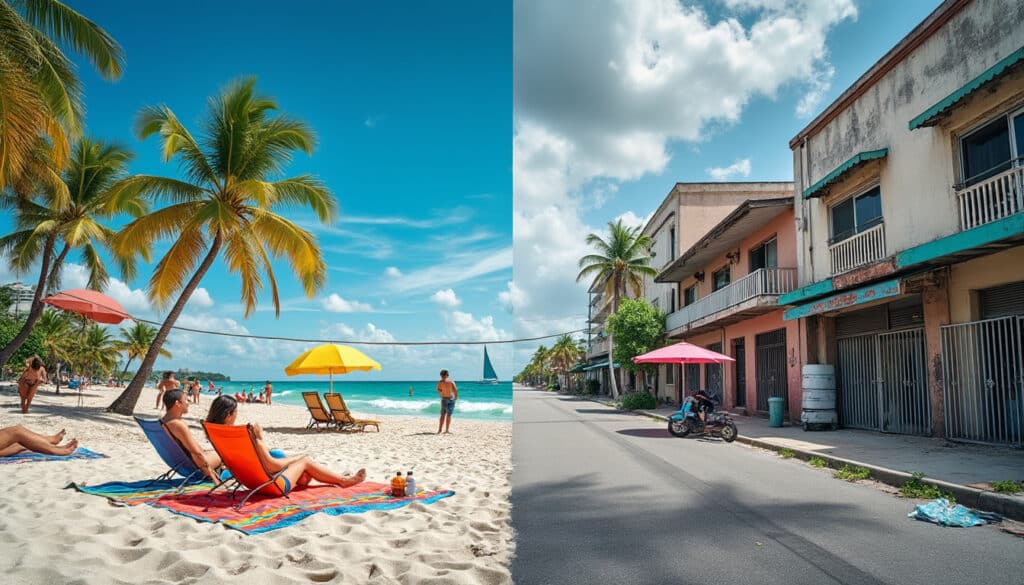Fort Lauderdale, often recognized for its sun-kissed beaches and vibrant nightlife, harbors an array of unusual facts and social intricacies that paint a more complex picture of this coastal city. Known as the “Venice of America” due to its vast network of canals, it is both a cultural hotspot and a city with socially relevant issues. Delve into the historical evolution, ecological marvels, and the social dynamics that make Fort Lauderdale an intriguing destination worth exploring.
The Nautical Heritage of Fort Lauderdale
Fort Lauderdale’s reputation as the “Yachting Capital of the World” is well-deserved, given its extensive network of waterways. Boasting around 165 miles of inland canals and a robust marine industry, the city indeed lives up to this nautical moniker. The Fort Lauderdale International Boat Show is a testament to this, attracting yacht aficionados and industry professionals globally.😍
Historically, the city’s relationship with water transports us back to the Second Seminole War, when the United States built a series of forts named after Major William Lauderdale. These forts laid the foundation for what would become a bustling maritime city.
| Feature 🚤 | Description 📜 |
|---|---|
| Inland Canals | 165 miles, giving it the nickname “Venice of America” |
| Fort Lauderdale International Boat Show | One of the largest in-water boat shows in the world |
| Recreational Boats | Highest number per capita in the U.S. |
More than just a yachting paradise, these waterways contribute to the city’s economy through tourism and the marine industry, offering jobs and enhancing the city’s appeal as a travel destination. Businesses such as charter services, maritime equipment businesses, and waterfront real estate have flourished, turning the region into a thriving economic hub.
Yet, the rhythmic beauty of these canals enhances not only the city’s economy but also its identity. For residents and visitors alike, these waterways provide leisure, beauty, and a taste of the opulent lifestyle. Sunset cruises and waterfront dining have become staples of the local culture, representing an integral part of Fort Lauderdale’s charm.
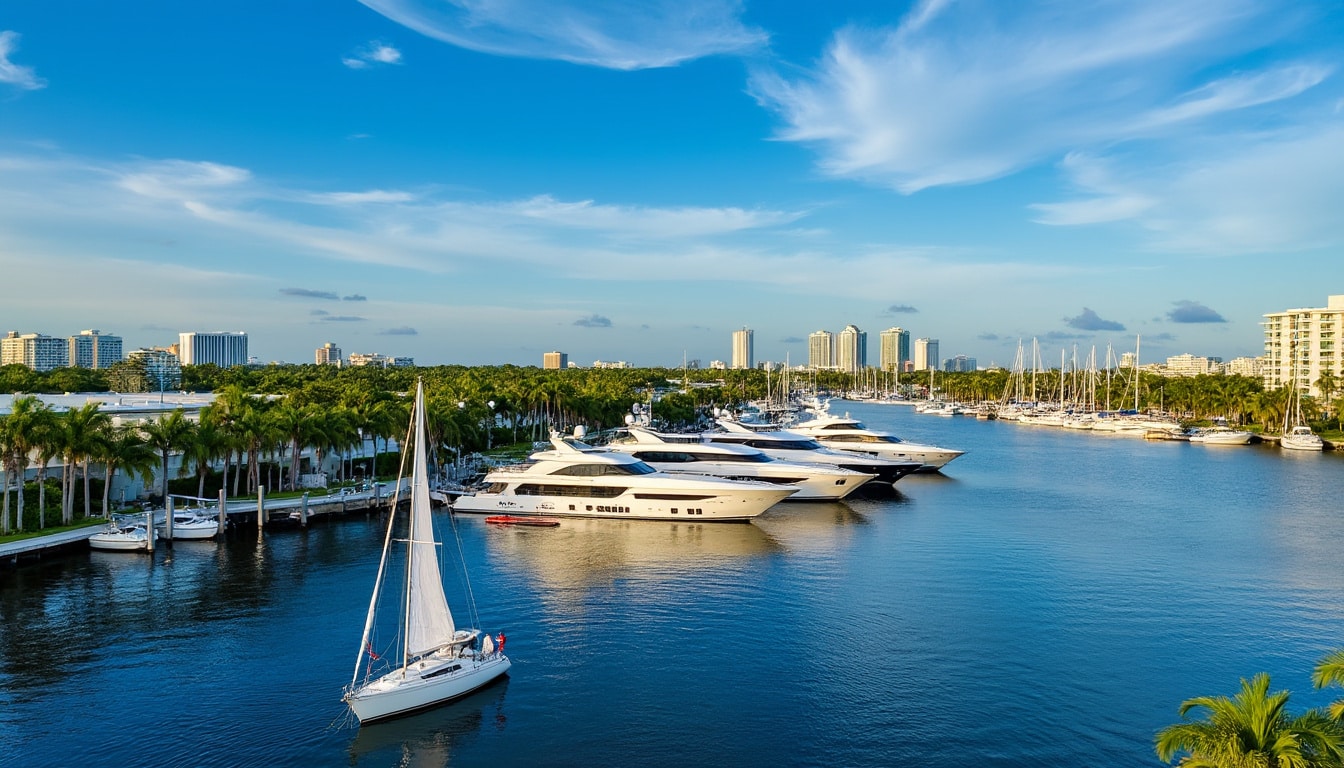
The city also safeguards its marine ecosystems, striving for a balance between recreational use and environmental management. By addressing pollution and the preservation of aquatic habitats, Fort Lauderdale ensures sustainable growth that respects its watery heritage. This dedication to environmental stewardship is not only crucial for maintaining the aesthetic beauty of the waterways but also for supporting biodiversity.
As we turn from the waters, where Fort Lauderdale’s heart beats loudest, it’s worth exploring the historical richness embedded in its cityscape.
Historical Landmarks and Their Social Influence
Fort Lauderdale’s history is a vibrant tapestry woven with tales of early settlers, military strategy, and social upheaval. Established officially in 1911, this city brims with landmarks that showcase its rich past.
The Stranahan House, the oldest surviving structure in Broward County, offers a glimpse into the settlement era. Built in 1901 by the city’s founding father, Frank Stranahan, initially served as a trading post and community gathering place. Today, it stands as a museum and historical site, preserving the legacy of early commerce and community in Fort Lauderdale.
| Landmark 🏰 | Historic Significance 🏛️ |
|---|---|
| Stranahan House | Oldest structure, originally a trading post |
| Bonnet House Museum | A blend of art, architecture, and ecology |
| Historical Society 🌟 | Preserving Fort Lauderdale’s past |
The Bonnet House Museum and Gardens adds an artistic flair, connecting history with ecology. This 35-acre estate, once owned by artist Frederic Clay Bartlett, enthralls visitors with its tropical gardens, nature trails, and art collections. It reflects an era where art and nature coexisted harmoniously, and its preservation continues to inspire ecologically mindful tourism and education.
Additionally, the role of institutions like the Fort Lauderdale Historical Society in maintaining and promoting the city’s cultural heritages is monumental. They not only preserve historical data but also facilitate a dialogue about the evolution of the city’s identity.
Fort Lauderdale, with its dense historical landscape, is not only about preservation but also about understanding its social progress. Through landmarks, the city narrates stories of change, resilience, and community development. As storytelling tools, these sites support educational programs and events that engage both locals and visitors.
The past continues to shape the social fabric of Fort Lauderdale, influencing its current cultural and social landscape. Significantly, these historical landmarks spotlight the city’s diverse roots and the nuanced social issues it has weathered over time.
Next, we explore the cultural vibrancy of Fort Lauderdale, where history meets modern-day artistry and expression—creating a vibrant backdrop for festivals and cultural gatherings.
Cultural Richness: Festivals and Modern Social Dynamics
Fort Lauderdale’s cultural life is a blend of artistic expression, community festivals, and an evolving social scene that reflects both its diverse population and progressive stance on inclusion.
Festivals like the Las Olas Art Fair showcase the city’s artistic flair, drawing artists from across the globe to display their work along the iconic Las Olas Boulevard. This fair is not merely an art exhibition but a celebration of cultural diversity, with local and international artists offering a myriad of styles and mediums. The boulevard transforms into a tapestry of colors, sights, and sounds, attracting art lovers and curious tourists alike. 🎨
- Fort Lauderdale Pride: A celebration of diversity and inclusion, supporting LGBTQ+ rights
- Las Olas Art Fair: International artists and community engagement through art
- Cultural Council of Broward: Supports local arts and cultural initiatives
The Cultural Council of Broward plays an essential role in nurturing this artistic ecosystem, funding local art projects, and facilitating cultural engagement among the community. Their initiatives ensure that public art is accessible and that local talent is supported and celebrated.
Moreover, events such as Fort Lauderdale Pride highlight the city’s commitment to social issues, notably LGBTQ+ rights. This festival not only celebrates the LGBTQ+ community but also emphasizes social acceptance and inclusivity. Such events are vital to fostering a community spirit that is not only aware but actively supportive of diversity.
The increasing attendance and participation in these events demonstrate a growing acceptance and celebration of diversity. There’s an evident layer of social activism intertwined with cultural festivities, reflecting Fort Lauderdale’s dedication to progressive values.
This cultural vibrancy also intersects with the education sector, where institutions like Broward College and Florida Atlantic University integrate cultural studies into their curricula, promoting an awareness and understanding of local and global cultures. By intertwining cultural education with academic pursuits, Fort Lauderdale ensures that its vibrant culture is perpetuated through the next generation.
As we transition from culture to education, we delve deeper into how educational institutions address the evolving social issues and prepare students to champion these causes effectively.
Education in Fort Lauderdale: Addressing Social Challenges
Education in Fort Lauderdale does not merely aim for academic excellence but also for tackling prevalent social issues, ensuring students are well-equipped to deal with real-world challenges.
Broward County Public Schools, serving one of the largest communities in Florida, exemplify how education systems can adapt to cater to diverse communities. These schools prioritize a curriculum that incorporates social-emotional learning (SEL) as a core component, teaching students empathy, cooperation, and mindfulness.
- Broward County Public Schools: Focused on SEL and equitable access
- Imagine School: Aims for personalized learning and critical thinking
- Florida Atlantic University: Merging cultural studies with academic pursuits
Pioneering in personalized and project-based learning, institutions like Imagine School emphasize critical thinking and problem-solving skills, addressing how socioeconomic disparities can influence student performance. This bespoke approach helps level the playing field for students from various backgrounds, ensuring equitable access to quality education.
Higher education institutions such as Florida Atlantic University further address these challenges by offering programs that integrate community service and cultural studies. These programs prepare students to become socially responsible citizens who can actively contribute to the betterment of society. Whether studying environmental science or cultural anthropology, students are encouraged to consider the societal impacts of their studies.
Moreover, partnerships with local community organizations, like the Broward Outreach Center, enable students to engage in meaningful service-learning opportunities. These interactions not only broaden students’ perspectives but also positively impact the surrounding community by addressing pressing social issues, such as poverty and homelessness.
Such educational initiatives are not isolated to academics alone but extend to life skills, critical for thriving in today’s globalized world.
Socioeconomic Initiatives and Community Impact
Fort Lauderdale’s contemporary social scene is marked by initiatives aiming to bridge economic divides and improve community welfare. The city’s dynamic economy, although diverse, highlights disparities that community programs strive to alleviate.
The city’s efforts, particularly in addressing homelessness and economic inequality, are commendable. Organizations such as the Broward Outreach Center play a vital role, providing shelter and vocational training to empower homeless individuals toward independence. These initiatives reflect an understanding that economic stability is inimical to a vibrant community.
- Broward Outreach Center: Focused on shelter and vocational training
- Marine Industry: Job creation through yachting and marine services
- Cultural Engagement: Festivals enhancing social cohesion
| Initiative 💡 | Community Impact 🤝 |
|---|---|
| Homelessness Programs | Providing shelter and skills training |
| Workforce Development | Job creation through marine and tourism sectors |
| Cultural Festivals | Enhancing social cohesion and community pride |
Fort Lauderdale’s economy is significantly bolstered by the marine sector and tourism, providing a wealth of employment opportunities that drive regional prosperity. The marine industry’s growth is instrumental in creating jobs, from skilled craftspeople to service industry positions, highlighting the economic symbiosis between industry and community.
Community initiatives also encompass festival-driven social cohesion, illustrating how events like cultural festivals and public arts projects bolster community spirit. This sense of pride and belonging is vital for social cohesion, ensuring that Fort Lauderdale remains a compelling and harmonious place for everyone.
As Fort Lauderdale continues to evolve, the city’s commitment to addressing social issues through equitable community and economic programs remains steadfast, establishing a model for sustainability and inclusivity nationwide.
With a fascinating blend of history, culture, and social consciousness, Fort Lauderdale stands as a unique and dynamic part of Florida’s cultural landscape.
FAQ
- What makes Fort Lauderdale unique?
Fort Lauderdale is known for its extensive network of canals, earning it the nickname “Venice of America.” The city’s vibrant marine industry and yachting culture further contribute to its unique charm. - How does Fort Lauderdale address social issues?
Social issues are addressed through educational reforms, community service programs like the Broward Outreach Center, and initiatives that promote inclusivity and economic equality. - What are popular cultural events in Fort Lauderdale?
Events such as the Las Olas Art Fair and Fort Lauderdale Pride celebrate the city’s cultural diversity and progressive social values. - How is Fort Lauderdale preserving its history?
Historical landmarks like the Stranahan House and Bonnet House Museum preserve the city’s past, supported by educational programs from organizations like the Fort Lauderdale Historical Society. - What educational opportunities exist in Fort Lauderdale?
Institutions like Broward College and Florida Atlantic University offer diverse programs emphasizing cultural awareness and community engagement.
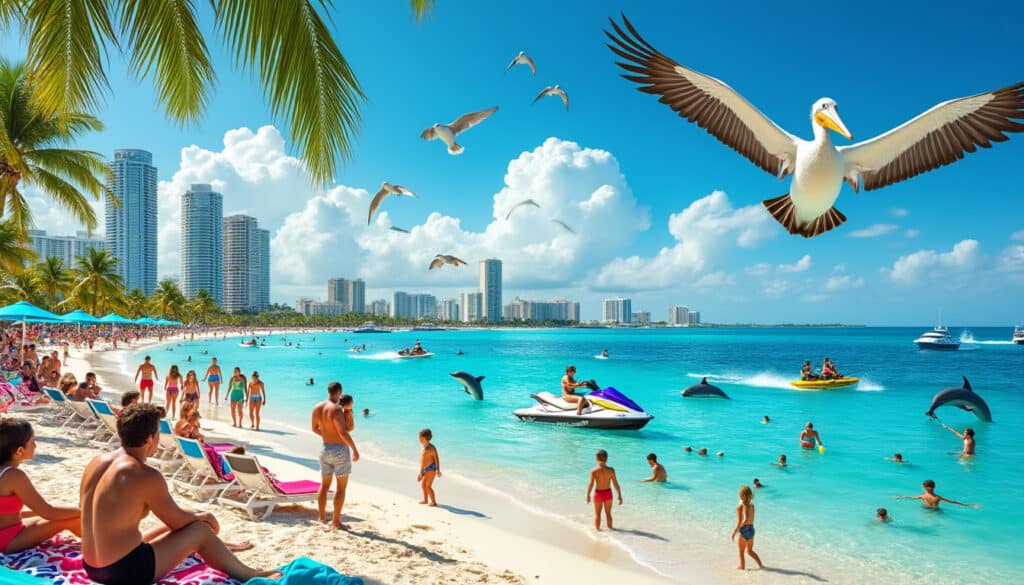
Fun Facts & Curiosities About Fort Lauderdale
Fort Lauderdale, a striking city in sunny Florida, has become a captivating destination for countless visitors worldwide. Known for its sparkling beaches, intricate canals, and vibrant culture, it offers more than just traditional tourist attractions. With fascinating history, an array…
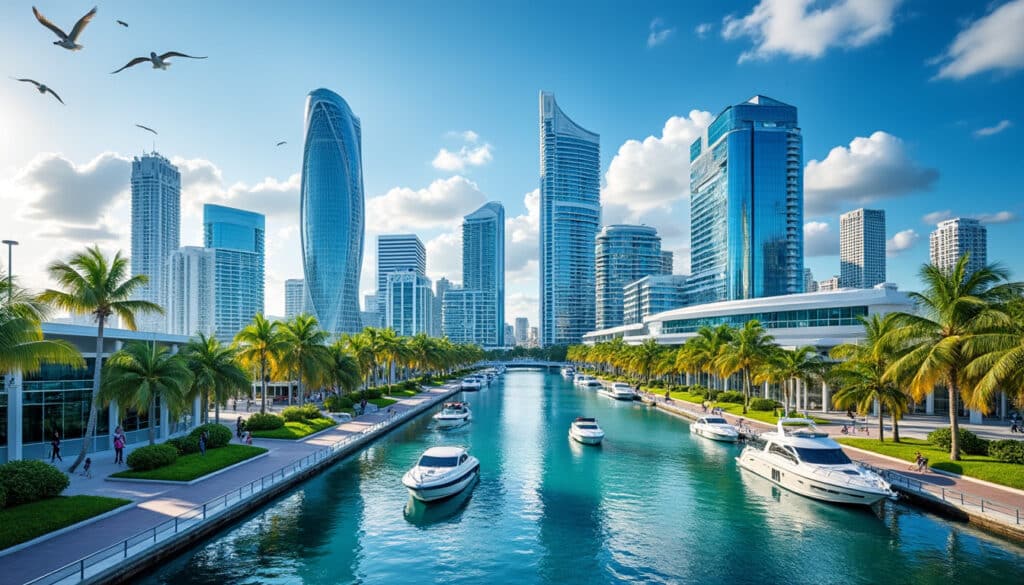
Architecture and urban features of Fort Lauderdale
Often referred to as the “Venice of America,” Fort Lauderdale, Florida is a destination that seamlessly blends history, innovation, and scenic beauty. This vibrant city is renowned for its extensive canal networks, pristine beaches, and an eclectic architectural landscape. On…
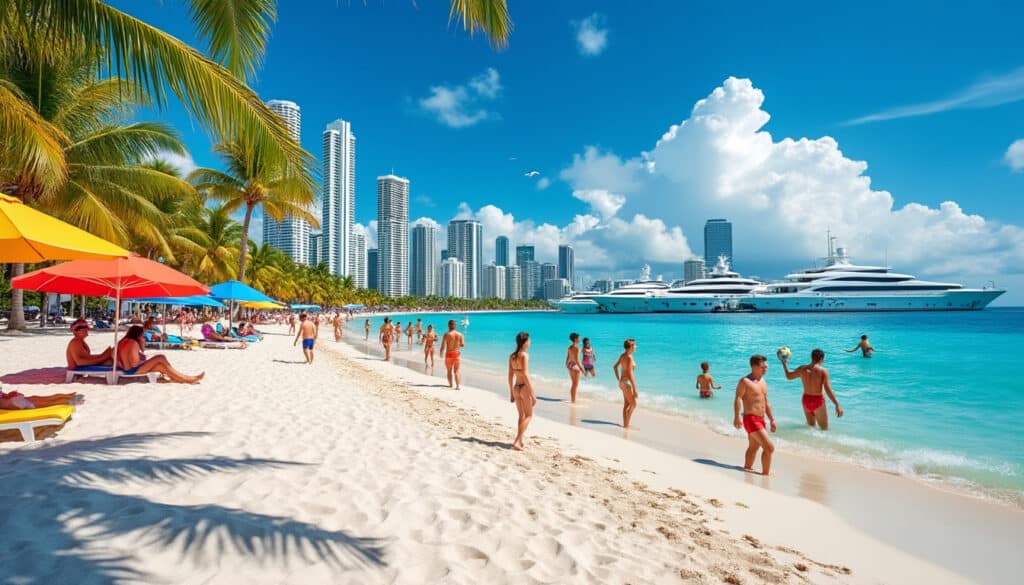
Basic facts about Fort Lauderdale
Fort Lauderdale, known as the “Venice of America,” is a vibrant city set against the picturesque backdrop of Florida’s Atlantic coastline. It is a bustling hub that features a unique blend of stunning beaches, a complex network of canals, and…
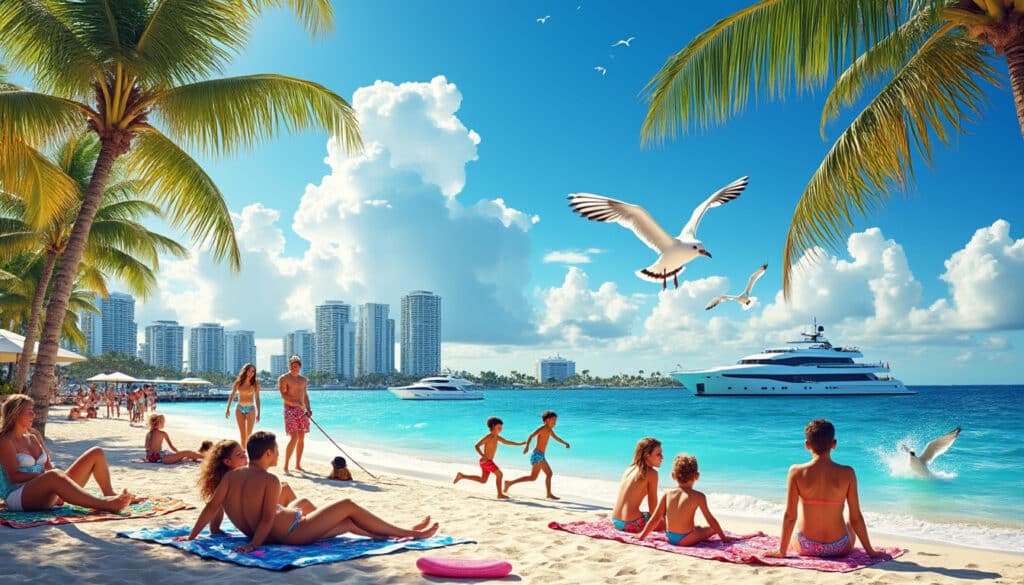
Nestled along the southeastern coast of Florida, Fort Lauderdale is a city that paints a vivid picture of sun-drenched beaches, canal-laden waters akin to Venice, and a lifestyle that intertwines with both leisure and purpose. Known for its stunning coastline,…
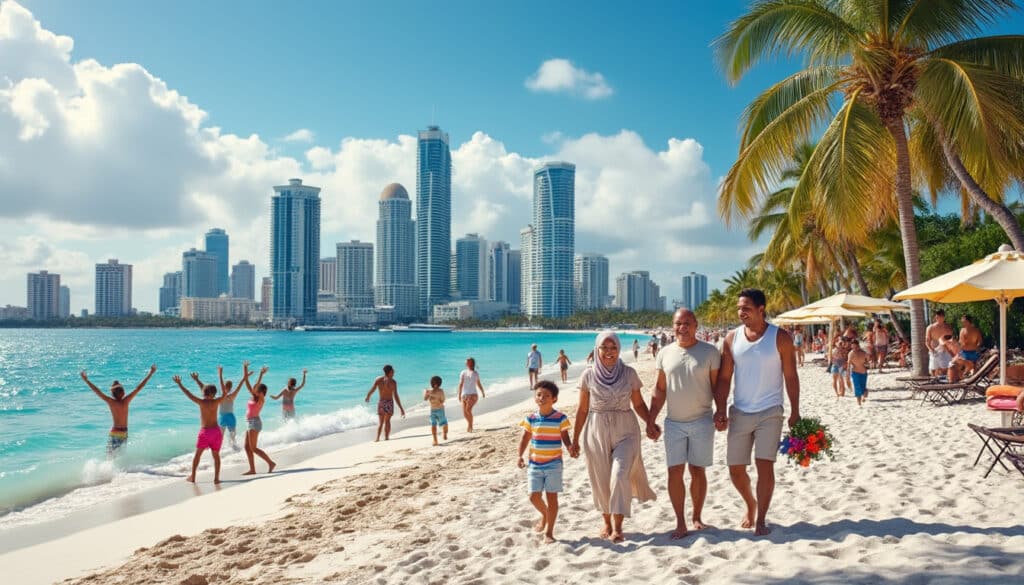
Demographics and geography of Fort Lauderdale
Fort Lauderdale, known as the “Venice of America” for its expansive and intricate canal system, offers a rich tapestry of demographics and geographical allure. This coastal gem, with its pristine beaches and vibrant cultural scene, attracts visitors and residents alike.…
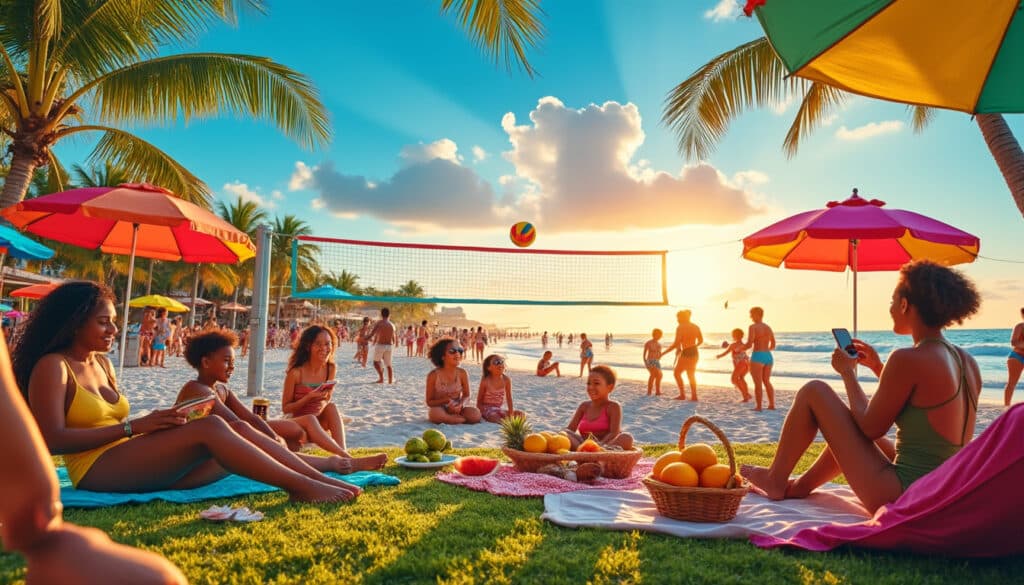
Holidays and celebrations in Fort Lauderdale
In the Sunshine State, Greater Fort Lauderdale shines brilliantly during the holiday season, offering an enticing fusion of tradition, culture, and modern flair. Whether seeking holiday lights along Las Olas or enjoying beachfront festivities, this area provides a wealth of…
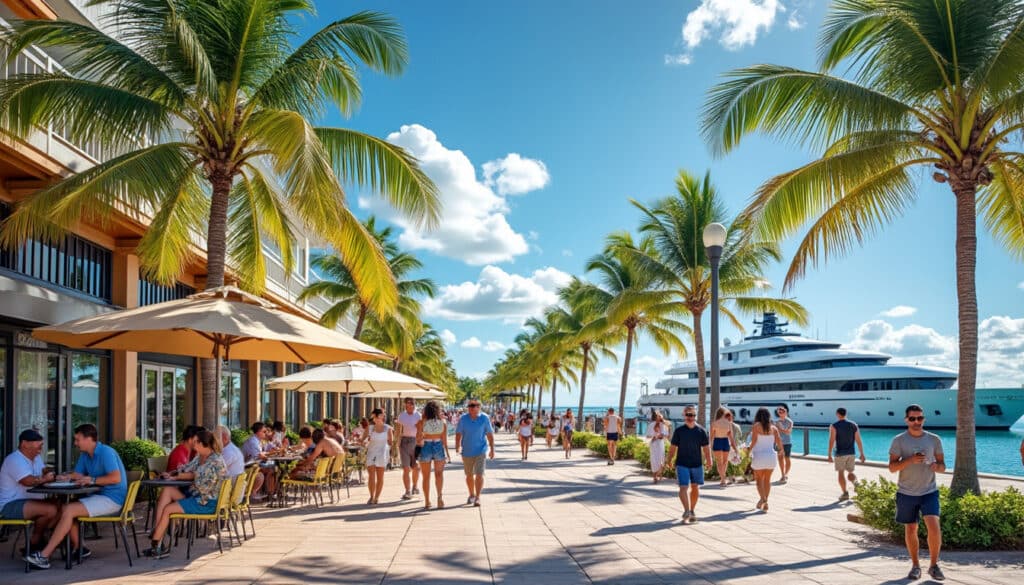
Language and spelling of Fort Lauderdale
Nestled along the sun-drenched shorelines of Florida, Fort Lauderdale stands as a vibrant hub of culture, tourism, and maritime allure. Renowned for its sprawling beaches and dynamic urban life, this coastal gem offers a plethora of intriguing elements to explore,…
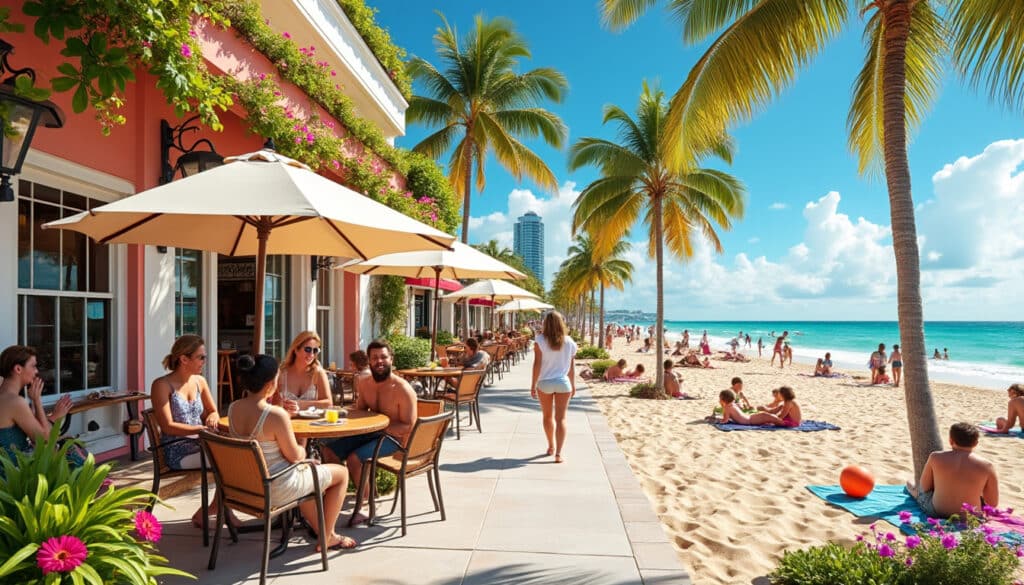
Local tips for tourists in Fort Lauderdale
Fort Lauderdale, often referred to as the “Venice of America,” is a vibrant hub for tourists seeking sun, sand, and a touch of culture. Nestled on Florida’s southeastern coast, this city offers a plethora of activities tailored for both beach…
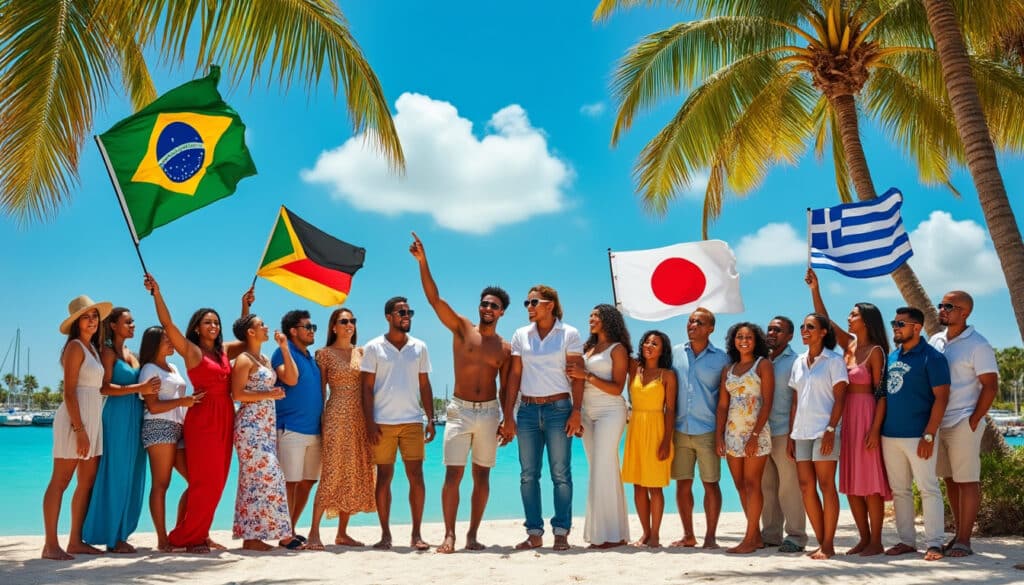
Names, flags, and identity of Fort Lauderdale
Renowned for its beautiful coastlines and vibrant yachting scene, Fort Lauderdale’s name is steeped in a rich history that combines military feats, cultural evolution, and natural beauty. Nestled in sunny Florida, this city has grown from a strategic military fort…
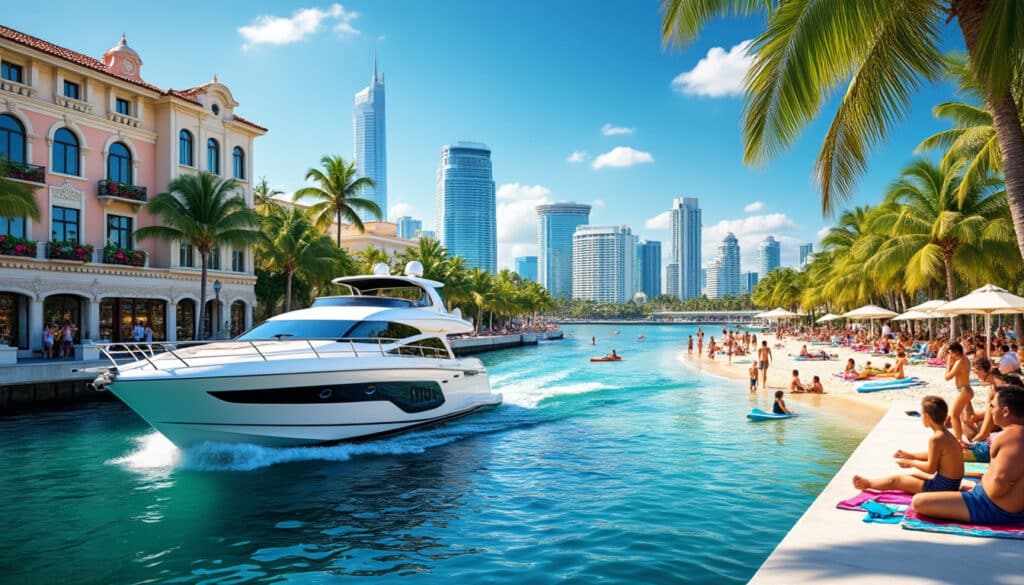
Reputation and identity of Fort Lauderdale
Fort Lauderdale, often overshadowed by its flashy neighbor Miami, possesses its own unique blend of characteristics that contribute to its reputation and identity. Known as the “Venice of America,” this enchanting city is home to an extensive network of canals,…
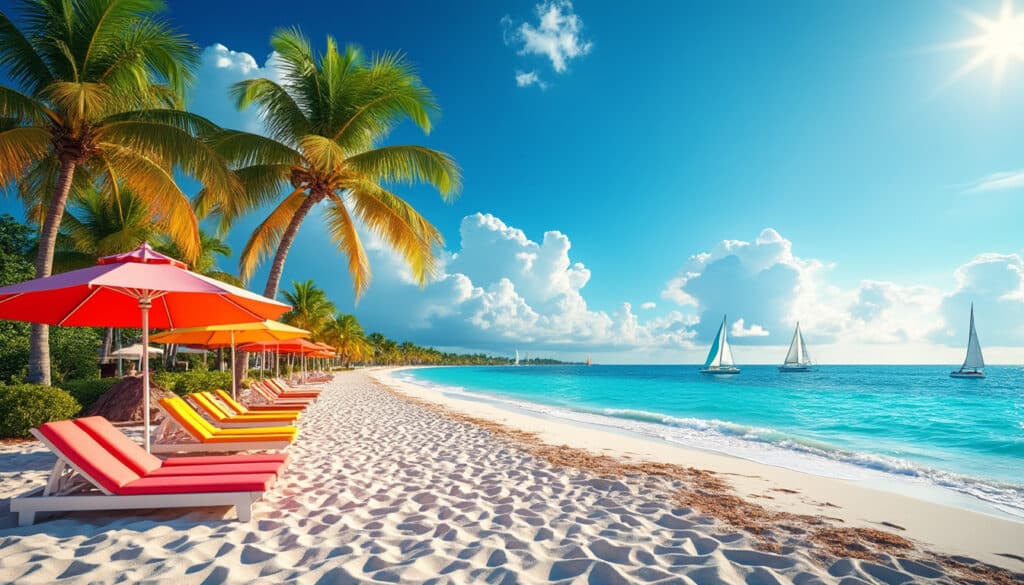
Climate & Weather in Fort Lauderdale
Fort Lauderdale, a sun-drenched paradise in Florida, is famed for its picturesque beaches, intricate canal system, and ultimate vacation allure. Understanding the climate and weather patterns of this coastal city is essential for travelers and residents alike. Knowledge of the…
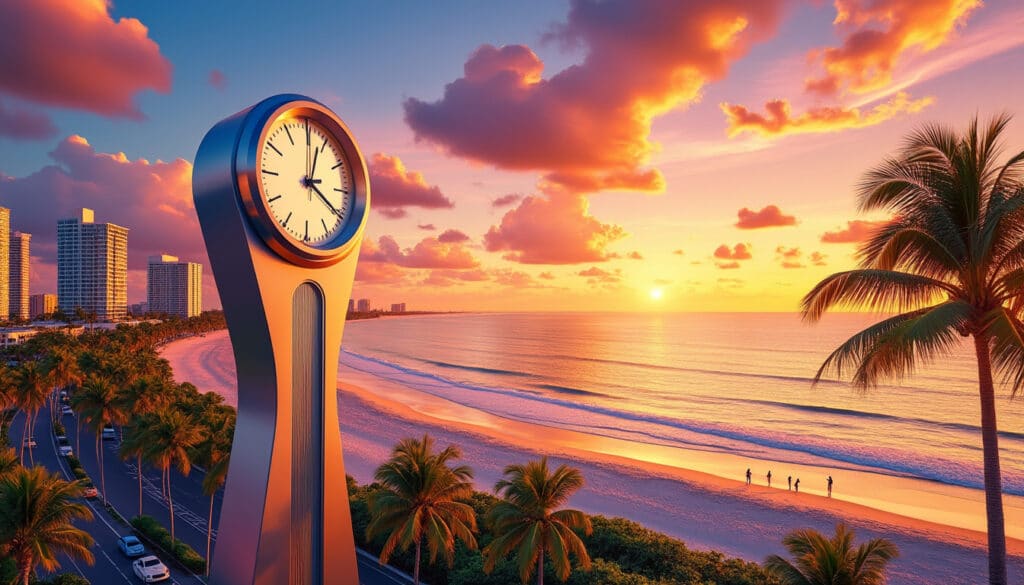
Time and time zone in Fort Lauderdale
🌴 Known for its beautiful beaches and bustling culture, Fort Lauderdale offers more than just scenic views. A hub of diverse experiences, it’s a place where time gains a unique dimension. From the daily rhythm determined by its Eastern Time…
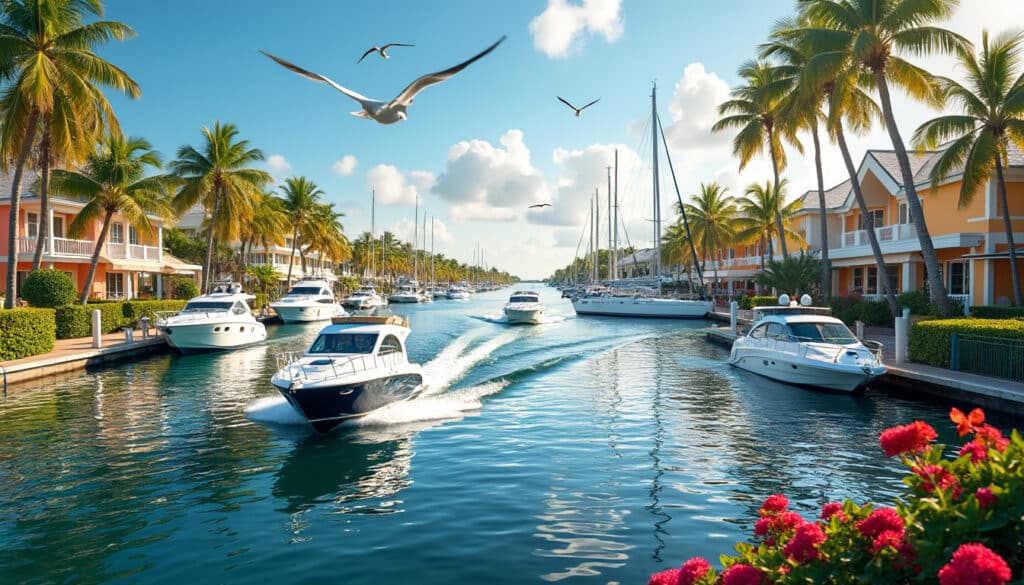
What does Fort Lauderdale look, smell, feel like?
Exploring the vibrant city of Fort Lauderdale can be a multi-sensory adventure with its stunning waterways, bustling arts scene, and culinary delights that offer an immersive experience for locals and tourists alike. Known for its nickname, the “Venice of America,”…
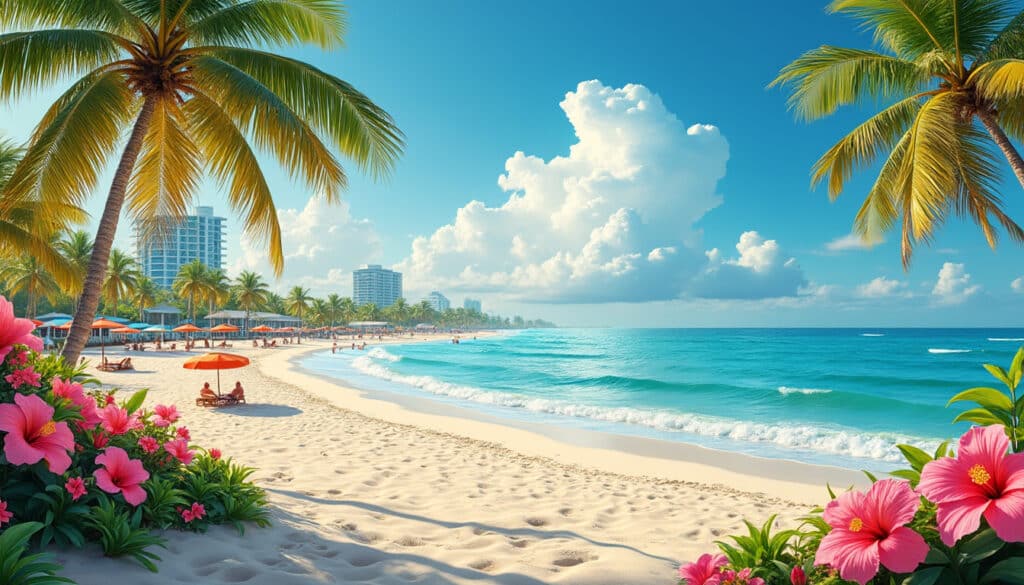
What does Fort Lauderdale smell like?
In Fort Lauderdale, a city renowned for its picturesque beaches and year-round tropical warmth, the scent that fills the air can be as distinctive as its skyline. Imagine walking along the sandy shores with a breeze carrying the whisper of…
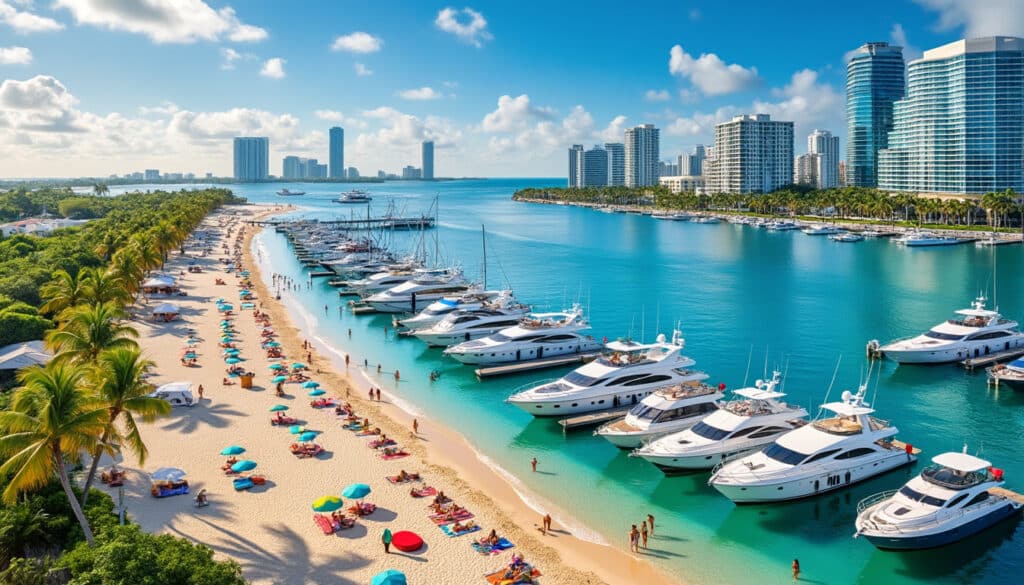
What does Fort Lauderdale look like?
Fort Lauderdale, a gem nestled along Florida’s southeastern coast, showcases a blend of the vibrant, serene, and historic. Known fondly as the “Venice of America” due to its intricate canal system, this city is a mélange of stunning beaches, elegant…


